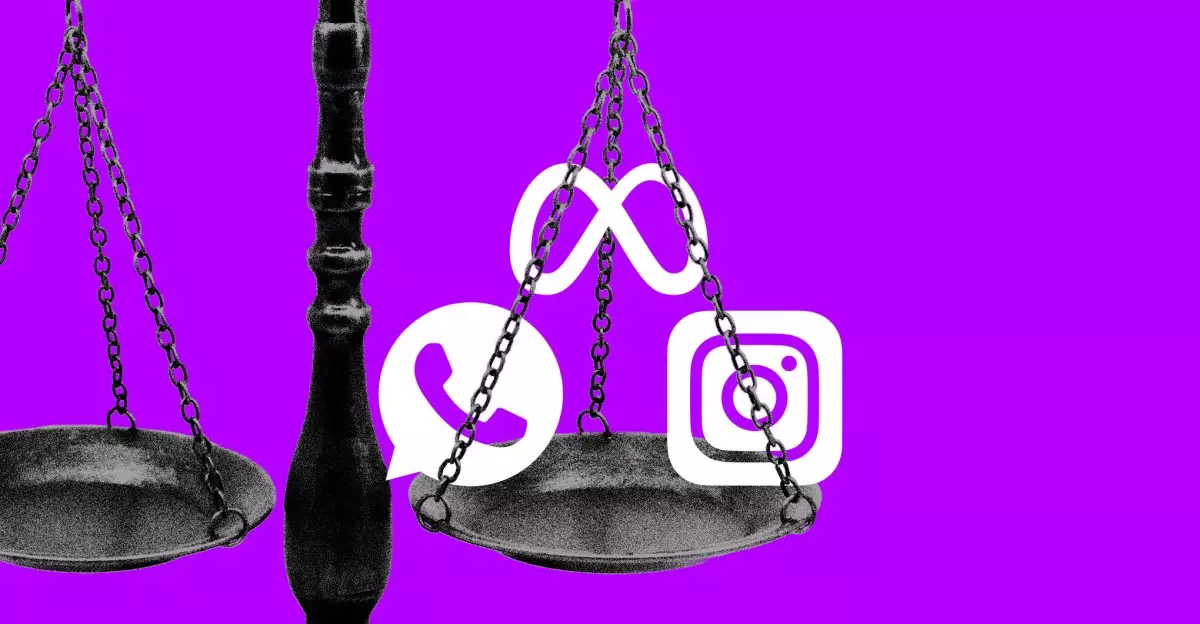The ongoing trial between the Federal Trade Commission (FTC) and Meta Platforms, Inc., the company led by CEO Mark Zuckerberg, has brought to light the complexities of corporate acquisition strategies in the tech industry. At the crux of this case lies the government’s assertion that Zuckerberg acquired Instagram and WhatsApp not to enhance their potential but to eliminate competition. The trial, packed with high-stakes drama and testimonies, underscores a critical juncture in the relationship between government oversight and corporate innovation in the digital age.
Zuckerberg’s Defense: From Competitor to Collaborator
Zuckerberg’s defense against the FTC’s claims was compelling, revealing a layer of intent that goes beyond mere market dominance. He articulated a long-term vision where acquiring WhatsApp was less about snuffing out a rival and more about adapting to the changing landscape of online communication. His assertion of willingness to pay $19 billion for WhatsApp reflected not a judgement of its potential as a rival but rather an understanding of its value in evolving consumer desires—where privacy and personal communication began to take precedence over public digital interaction.
In Zuckerberg’s view, the acquisition was borne out of a strategic necessity to position Facebook favorably against competitors like Apple and Google. By claiming WhatsApp, Zuckerberg believed he was gaining leverage, a perspective that speaks to a broader corporate strategy of proactive expansion rather than reactionary acquisition—a principle that should be recognized in the fulcrum of antitrust discussions.
Market Dynamics: The Shift Towards Private Engagement
During his testimony, Zuckerberg focused on the shift in how people interact online, positing that users were gravitating toward private messaging applications. This change presented a potential challenge to the Facebook business model, which largely relied on public engagement. His foresight into the rapidly evolving dynamics of digital communication justified his decision to acquire WhatsApp. Rather than operating with malicious intent, Zuckerberg framed his strategy as an adaptation to an inevitable industry evolution.
The case of Instagram parallels this rationale. Zuckerberg’s insights into Instagram’s trajectory and user engagement reveal not an effort to suppress competition, but rather to enhance what he perceived as a valuable asset. The internal discussion within Meta about Instagram’s growth reflects this perspective. Far from fearing Instagram’s competition, he sought to ensure the platform expanded effectively, ultimately surpassing even his ambitious goals.
Misconceptions of Market Control
One might question whether Zuckerberg’s substantial investments in these applications served to create a monopoly or foster a diversified ecosystem of services. While the FTC’s narrative spins a tale of corporate cannibalism—with claims that Meta aims to ‘kill’ rivals—the reality presented by Zuckerberg suggests a different story. Investment in WhatsApp and Instagram enabled Meta not only to embrace competition but to cultivate a flourishing environment for user engagement, contradicting the accusations of anti-competitive behavior.
Furthermore, the notion of acquiring innovations only to stifle them is counterproductive. A successful business thrives on innovation, and Zuckerberg’s testimony showcased the measures taken to enhance both WhatsApp and Instagram post-acquisition. The claim that he would rather see both platforms thrive under Meta’s umbrella rather than wither as independent entities reflects a complex understanding of market dynamics.
The Ripple Effect of Acquisition Strategies
As Meta navigates this turbulent trial, it stands as a case study for tech giants contemplating similar paths. The discussion surrounding Zuckerberg’s strategy raises pertinent questions about the responsibilities of large conglomerates in fostering innovation and maintaining competition. The notion that Zuckerberg would “do it again” emphasizes his belief in the importance of forward-thinking acquisition strategies that anticipate market trends rather than react to them.
Additionally, the dichotomy between potential market control and positive consumer impact finds itself at the heart of this trial. Zuckerberg’s assertion that his decisions are not solely about competitive dominance but rather about understanding and shaping user experiences challenges fundamental assumptions about the implications of mergers and acquisitions in the tech landscape.
A Personal Reflection: The Ethical Considerations of Corporate Growth
In any powerful corporation, the line between evolving business strategies to capture market needs and anti-competitive behavior is always thin. As social media continues to occupy a pivotal role in society, the ethical implications of such acquisitions invite scrutiny. Should the motives behind strategic purchasing be purely commercial, or should there be a conscientious effort to ensure that innovation thrives freely?
Zuckerberg’s confident defense highlights one undeniable truth: in a rapidly changing technological landscape, the desire to adapt is not synonymous with malicious intent. His narrative presents a corporate philosophy where growth and competitive engagement can coexist, contributing positively to user experience while navigating the intricacies of market control. Whether this philosophy will hold up in the ongoing trial remains to be seen, but it undeniably provokes thoughtful discussion about the future of corporate growth in tech industries.


Leave a Reply